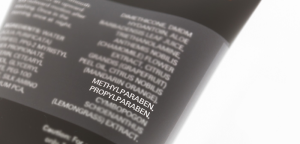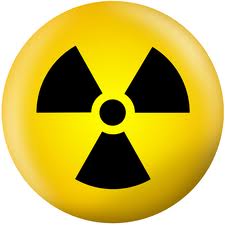This is the age of “healthy living”. Each and every product available in the market today is questionable. The increased use of toxic and hazardous chemicals required for making these products has made people more wary of what type of food they eat, what products they use, what kind of environment they live in to name a few. Hence, we can no longer depend on companies and brands to choose what is right for us and what is not. The public has finally realized the fact that their well-being and health lies in their hands only. Though, we cannot completely avoid using such products, but we surely can limit their use or can replace them with better alternatives.
A surprising 300 man-made chemicals have been reportedly found in humans. Another startling fact states that 95% of cancer cases are caused by diet and environmental toxicity. Hence, it becomes imperative for us to introduce simple changes in our everyday personal care routines which can reduce our long-term exposure to low levels of potentially harmful chemicals.
Here are some easy and affordable things one can do to begin the process of feeling better about your home and body.
- Ventilate your home. Indoor air is two to ten times more polluted than outdoor air due to the chemicals in products that are commonly used in the home. Every day, open the curtains and let in the sunlight, a natural antibacterial agent. Ventilate several times a day (even in winter) especially while you cook and after you shower. This way you limit the amount of flame-retardants in your indoor air. For added benefit, bring in some air purifying plants. These plants are extremely low maintenance, tolerant of irregular watering and less lighting, and has the potential to absorb airborne chemicals. Plus, they will compliment your living space.

- Use better home furnishings. When purchasing and replacing home furnishings, avoid synthetic materials and manufactured wood products. They contain chemicals such as formaldehyde, which studies show increase the risk of reproductive disorders and birth defects as well as plasticizers, which studies show increase the risk of developing reproductive cancers and asthma. Replace vinyl shower curtains with those made of natural fibers. These contain phthalates which readily evaporate into the air and hot steamy conditions promote the release of plasticizers.
- Wash new clothing before use. It can take up to 3 washes to get the worst concentrations of per fluorinated substances out. This will reduce chances of any skin allergies.
- Reduce use of plastics. Plastics can leach hormone-like chemicals; this includes plastics marked BPA-free. Stop buying bottled water — they’re bad for the environment, expensive, and above all bad for your health. If you can afford to do so, use glassware instead of plastic.
- Reduce intake of canned foods because, like plastic, they contain potentially toxic chemicals. If possible, buy food like beans and peas in bulk from a health food store, and stock up when they go on sale. If you need to buy canned goods, try to avoid the really acidic food like tomatoes.
- Stop using antibacterial products. They contain harsh chemicals like triclosan, a known endocrine disruptor, commonly used in antibacterial soaps, hand sanitizers, toothpastes and deodorants which has been linked to liver toxicity and ends up in water sources. Washing hands with plain soap is just as effective and cheaper.
- Don’t buy toothpaste with artificial sweeteners, colorings, and sodium lauryl/laureth sulfates. Besides containing fluoride, triclosan is often a toothpaste ingredient. They may also contain SLS (a foaming agent that can irritate the mouth and gums), propylene glycol (a solvent that’s the active component in some antifreezes) artificial colors, and others. Instead switch to a natural toothpaste. By doing so you can sidestep the chemicals, artificial colors and other potentially harmful ingredients.
- Don’t use products with nonstick treatments such as Teflon. Instead, choose cast iron or stainless steel. If you can’t afford to replace this, at least discard those that show signs of even slight deterioration.
- Leave your shoes at the door so that you’re not spreading outdoor pollutants and additional toxic dust throughout the house. This is the easiest thing you can do, and costs you nothing. This is very simple to follow as it is a common practice in almost every other house hold in India.
- Care for your hair, naturally. If you dye your hair, consider opting for a henna instead of any artificial dye. Over 5,000 different chemicals are used in hair dye products, some of which are reported to be carcinogenic. You could build a tolerance to chemicals and eventually suffer an allergic reaction.
- Reduce or eliminate the use of plastics for food storage. Use glass in the microwave to avoid increased leaching of chemicals into foods from heated plastic containers. Choose food storage containers made of glass, ceramic or stainless steel.
- Dust with a damp rag. Studies show that house dust contains phthalates, which are chemicals linked to increased respiratory illnesses as well as asthma and allergies in both children and adults.
- Read the labels for processed foods, shampoo, lotions and other body care products and look for the word ‘paraben’. Methyl paraben is most of the type of paraben used in food products. Parabens can mimic the hormone estrogen, which is known to play a role in the development of breast cancers.

- When caring for your garden or lawn, avoid chemical fertilizers. Phosphates and nitrates enter the water supply, stimulating the growth of algae, which disrupts the ecosystem. Compost, peat, rotted manure and bone meal are all natural fertilizers, but even these should be used sparingly. Add fertilizer only when soil has deficiencies.

Leave a Reply